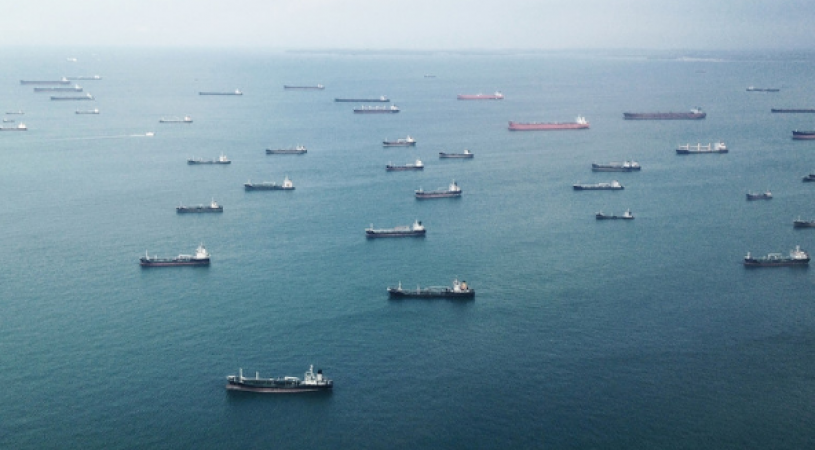
MOSCOW: Singapore has seen a surge in demand for oil storage tanks as a result of increased costs and financial benefits from blending cheap fuel from Russia with other suppliers, according to sources on Thursday.
According to those with knowledge of the situation, the process could help conceal the origin of the cargo.
According to the report, Singapore has not banned the import of Russian oil or petroleum products, but financial institutions based there are not allowed to finance or trade with Russian products or firms.
Also Read: Global household wealth optimism declines, according to a survey
According to Bloomberg, the flow of Russian crude oil and fuel to Asia and the Middle East has increased recently. "These shipments have increasingly made their way to blending and redistribution centers such as Singapore and Fujairah in the United Arab Emirates, where they can be co-blended, remanufactured and re-exported," Bloomberg wrote.
As the EU prepares to implement new sanctions on Russian petroleum products on February 5, the outlet anticipates a trend of increased shipments from Russia to Asia in the coming weeks and an increased role of hubs in their redistribution.
Also Read: PhonePe raises USD 350-Mn at USD12-Bn valuation
Singapore's oil receiving terminals received more than double the amount of Russian naphtha and fuel oil in December than a year earlier, according to ship tracking data provided by Vortexa. According to the report, the city-state received 2.6 million barrels of naphtha, or nearly 40 times the amount it took a year earlier.
William Tan, senior vice president at Singapore's Miyabi Industries, a marine fuel consultant, claims that traders and fuel suppliers are currently all into oil storage and blending plays, due to "very good" profit margins from such operations.
Tan attributed this to the very cheap supply of Russian fuel oil, as well as the availability of other goods such as light cycle oil. Their calculations show that by mixing Russian components with other grades to make blended fuel oil products, traders can make close to a 20% profit margin.
Also Read: In Q4 2022, Saudi real estate prices increased by 1.6%.
According to him, such gains are typically between 10% and 12%, but could increase further if sellers become more eager to offload their cargo as a result of an increase in trade restrictions. "Some of this blended fuel could be used to bunker fuel in Singapore or be traded in neighboring countries such as Indonesia and Vietnam,